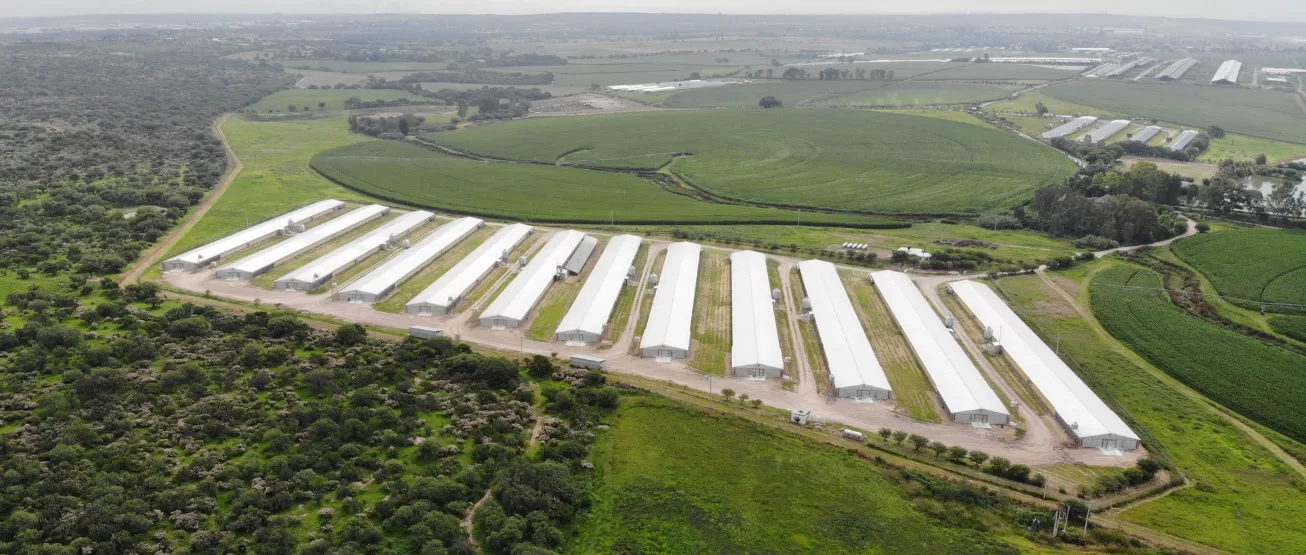Contract Grower Resource Guide

Big meat corporations routinely exploit contract growers. Learn why the industry’s unfair contracts are a bad deal, and what you can do if you’re stuck in one.
Resources
Thinking About Becoming a Grower?

Why Contract Growing Is a Bad Decision
Huge, Risky Investment
Contract growing requires the farmer to invest hundreds of thousands of dollars to build barns and other infrastructure that can’t easily be used for anything else. If a grower loses their contract, they’re saddled with massive debt without a clear way to repay it.
Betting the Farm
Farmers often finance their operation using generational farmland and family homes as collateral. If the company terminates the contract, the grower is at risk of losing their home and their farm.
Only One Game in Town
In many cases, there’s only one company (also known as an integrator) in a geographic area for growers to contract with. This leaves the farmer vulnerable to company whims, because if the contract is terminated, the grower can’t contract with a different company, making it difficult—if not impossible—to repay their loan. (This market condition is called a monopsony.)
Imbalance of Power
Contracts are written by the company to protect the company. They can be changed and even terminated by the company with little notice or recourse. They’re not a product of good faith bargaining; they’re presented simply as “take it or leave it” agreements. (The legal term for this is “contracts of adhesion.”)
Rigged System
Poultry companies typically use the “tournament system,” which gives top-performing growers bonuses, which the company funds by reducing the pay of the lowest-performing growers. However, because the company controls all aspects of the grow-out process (e.g., the number of chicks, the breed of bird, the health of the flocks, feed rations, the number of flocks per year, etc.), much of a grower’s success is out of their control. In addition to pitting farmers against one another, this system causes growers’ income to be inconsistent from flock-to-flock and year-to-year.
Employee Misclassification
Companies classify contract growers as “independent contractors” rather than employees in order to limit their liability and avoid paying payroll taxes and offering benefits like health insurance or retirement plans. However, companies exercise so much control over farmers that courts are now hearing cases arguing that contract growers should actually be classified as employees—and therefore deserve all associated rights and benefits.
Contract Grower Profiles: Firsthand Accounts of a Broken System
These farmers have all been contract growers for big meat corporations. Learn why they wouldn’t make the same mistake again.

Craig Watts
North CarolinaHaving been raised on a small tobacco farm in southeastern North Carolina, I appreciated the tranquility of being in nature and the sense of freedom that comes with living on the land. However, it wasn’t until I moved away and experienced life from the inside of an airport that I started longing for a return to life on the farm. Read more.

Michael Diaz
South CarolinaMy wife and I have always dreamed of owning a family farm. Having grown up around farming, I developed a special relationship with the land. My uncle owned a small family farm where he grew produce and raised cows, chickens, and goats. Read more.

Susie Crutchfield
ArkansasIn 1987, my husband and I signed a contract with Tyson Foods to raise factory farm chickens in Johnson County, Arkansas. We took out a loan from the bank for $175,000 and wagered our family land to get into the chicken business. Read more.

Trina McClendon
MississippiI became an advocate against food chain consolidation after Sanderson Farms, with no notification to growers, sold their company to the two largest privately held corporations in America for $4.53 billion. Less than a week after the public announcement, they were on our farms trying to reduce our pay by giving the grower a pay cut. Read More

Paula Boles
North CarolinaAs a proud, hardworking, independent farmer with experience growing a variety of livestock and produce over the years, we were interested in a business that could provide a supplemental income through our retirement years. The integrator’s presentation made it seem like the perfect plan—but it couldn’t have been more perfectly wrong! Read More

Reid Phifer
North CarolinaMy name is Reid Phifer, and I contracted with Cuddy Foods to grow heavy Tom turkeys in early 1986. Once I signed THEIR contract, I immediately saw differences in what they said my income would be versus my actual income. Read More
Learn More About Contract Growing
Want more details about the problems with contract livestock production? Explore the resources below, or contact us for additional information.
Alternatives to Contract Growing: Education and Training Opportunities
There are many ways to farm without signing an unfair contract with a giant meat corporation.
Current Contract Growers

If you are a contract grower struggling in the system, contact us. We might be able to help or refer you to experts for guidance on:
- Rights under the Packers and Stockyards Act
- Contract issues
- Loan Issues
- Legal referrals
- Transitioning your operation to other types of farming.
Here are some other useful resources
Can you help us by taking a quick survey?
We created these surveys to help us understand the experiences of current, former, and potential future contract farmers in order to better serve their needs. The surveys are completely anonymous, and no personal information will be collected.
If you have any questions, contact Craig Watts (craigw@sraproject.org) or Meg Hicks (MAHICKS@email.sc.edu).

